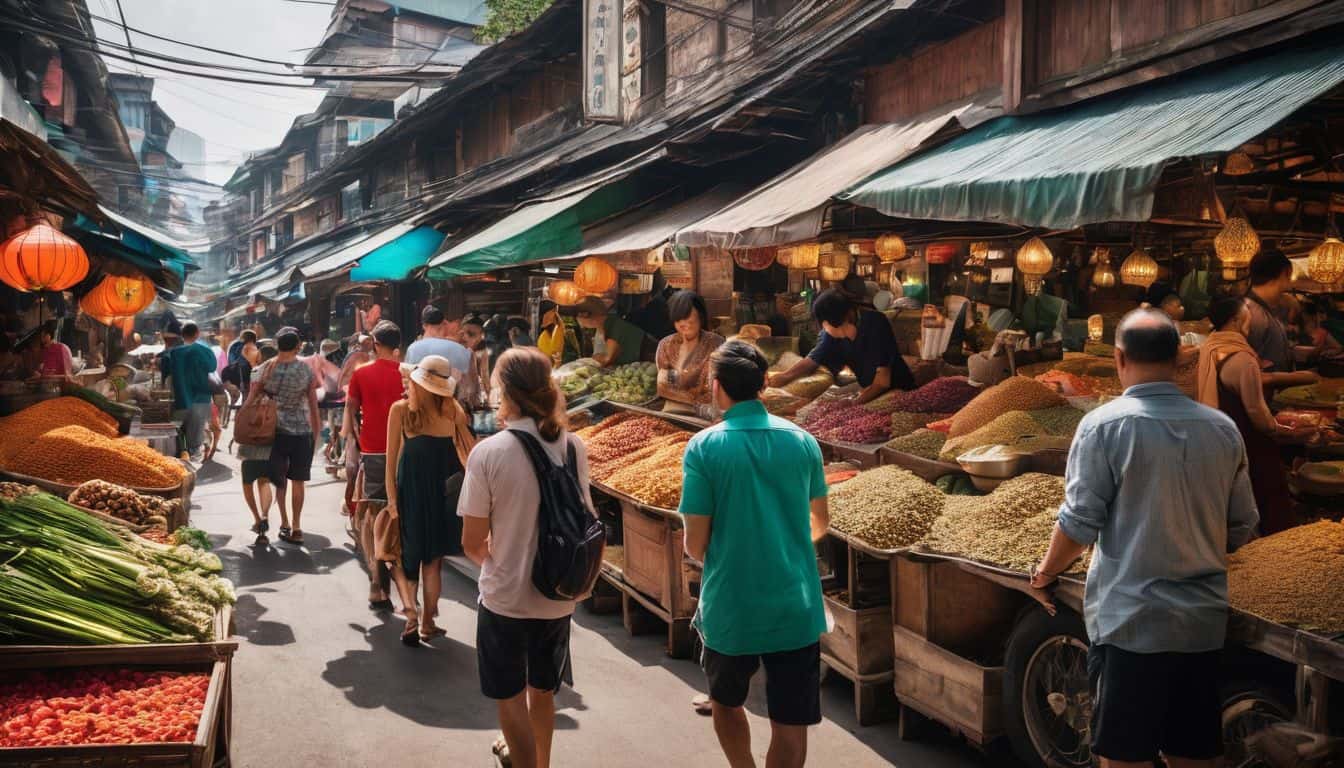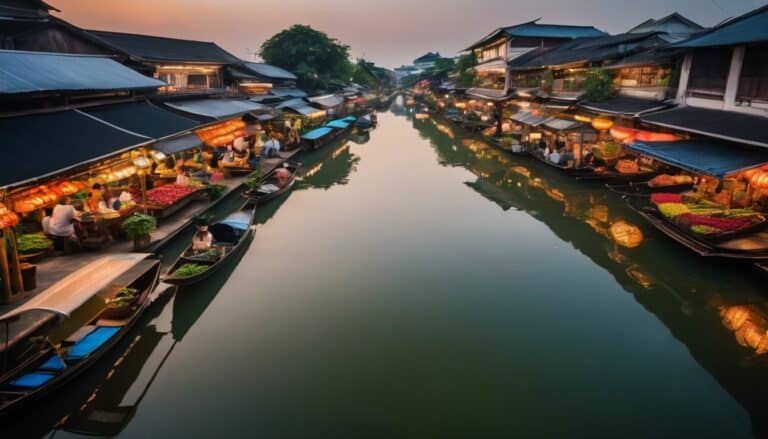Understanding The Meaning Of Farang In Thai Culture: An Insight Into Its Usage And Implications In Thailand
Planning a trip to Thailand? If so, you might have heard the word “farang” tossed around. Originating from the Sanskrit word “farangka,” meaning French, it has evolved into a term that Thai people use to refer to foreigners.
This blog post will give you an in-depth understanding of what ‘farang’ means in Thai culture and how its usage can shape your experience while traveling in Thailand. Stick around for some fascinating cultural insights!
Key Takeaways
- “Farang” is a term used in Thai culture to refer to foreigners, particularly Westerners like Caucasians and African-Americans.
- The word “farang” originated from the Sanskrit word “farangka,” which means French, but its meaning has expanded over time to include all non-Thai individuals.
- The usage of the term “farang” reflects cultural differences and perceptions of foreigners in Thailand, with both positive and negative connotations depending on the context.
- Being called “farang” can highlight cultural differences, shape perceptions of foreigners, and perpetuate a stigma against Farangs in Thai society.
The Meaning of Farang in Thai Culture
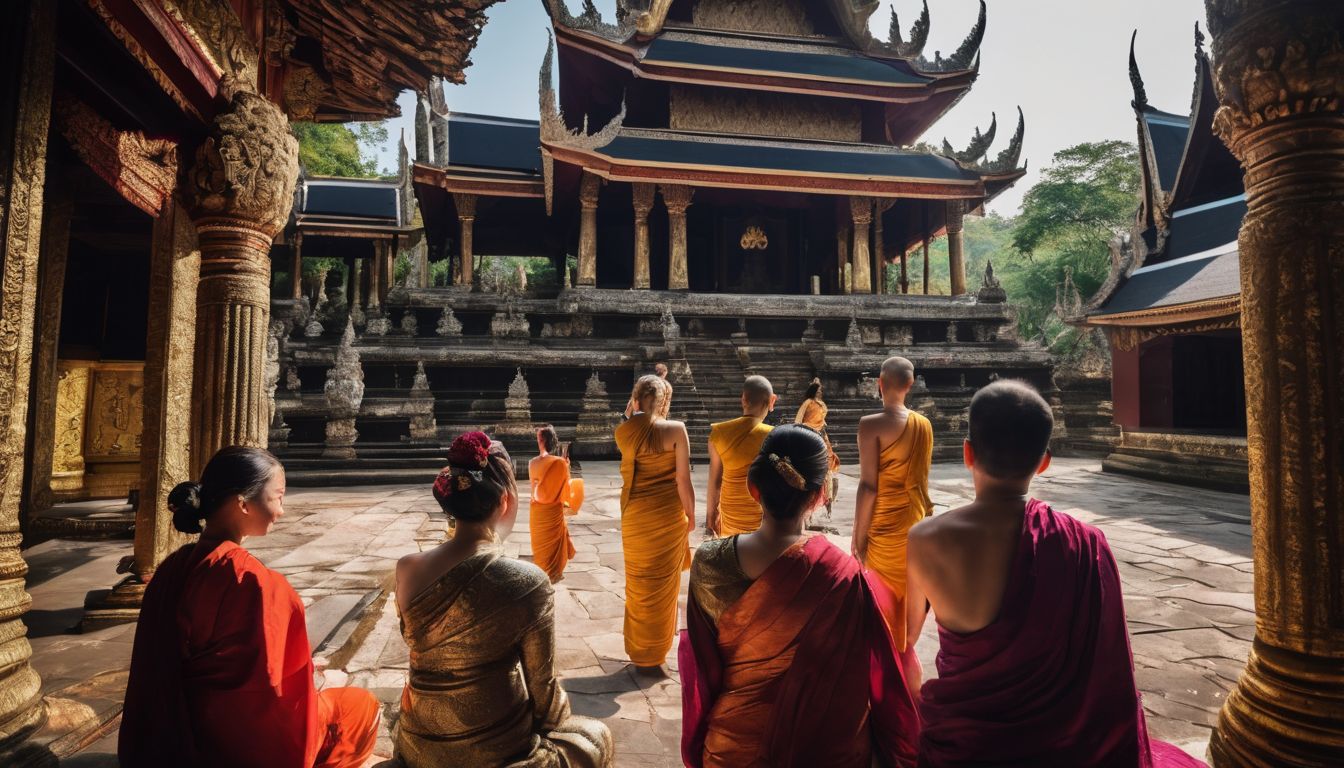
The word Farang originated from the Sanskrit word “phalanka,” which means foreigner or outsider. In Thai culture, it is commonly used to describe Westerners, particularly Caucasians, but can also include African-Americans.
Origins of the word
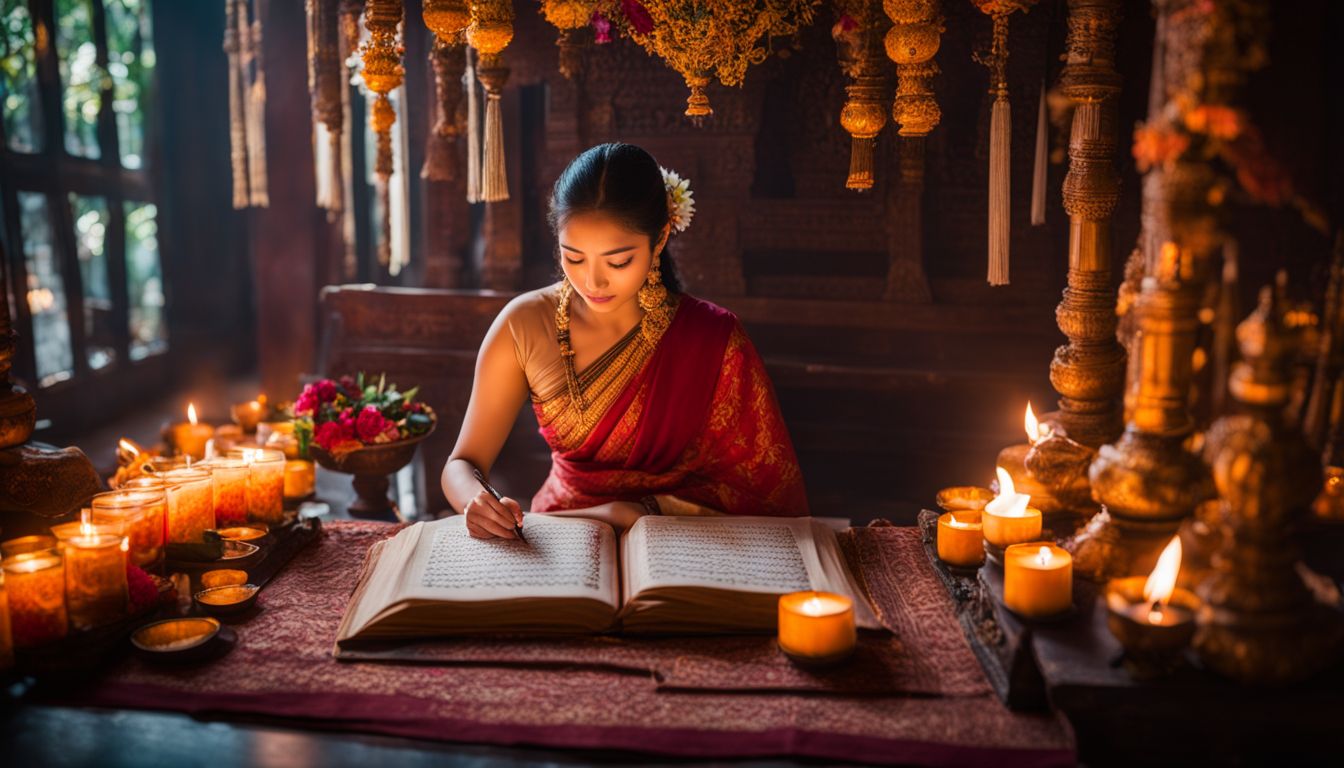 “Farang” comes from a Sanskrit word. This old word is “farangka.” The first use of “farangka” was to point at the French people. Over time, Thai people gave this name to all new faces in their land.
“Farang” comes from a Sanskrit word. This old word is “farangka.” The first use of “farangka” was to point at the French people. Over time, Thai people gave this name to all new faces in their land.
So, the term grew larger than its first meaning.
Many cultures have used words like farang. For instance, Thai Muslims and Persians also had their own term for Europan traders: they called them “Frangistan”. Just like how “farang” changed over time in Thailand, these terms may change in other places too.
Its usage in Thailand
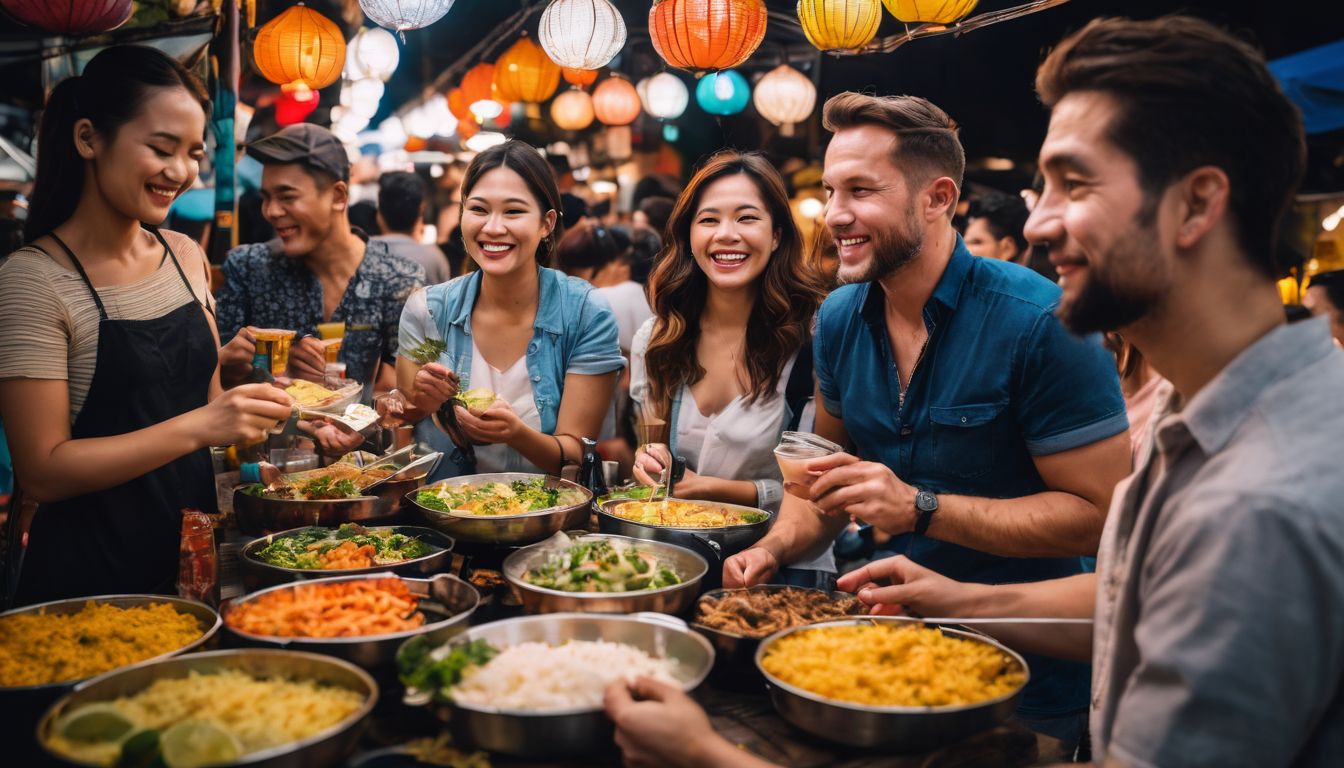
People use the word ‘farang’ a lot in Thailand. It is for people who come from other places and do not look like Thai people. Most times, it is used to talk about Caucasians or people with light skin color.
More so, they even use it to call African-Americans ‘farang’. They often add ‘dam’, which means black, making it ‘farang dam’.
The way Thai people use the word tells us much about how they see and think of those coming in from outside of their country. It isn’t mean or meant to hurt feelings. In truth, it’s just an easy term for any foreigner in Thailand.
Farang does carry different tones based on how you say it. The heart behind the words matter more than anything else in Thailand culture when using this term!
Westerners as Farang in Thai Culture
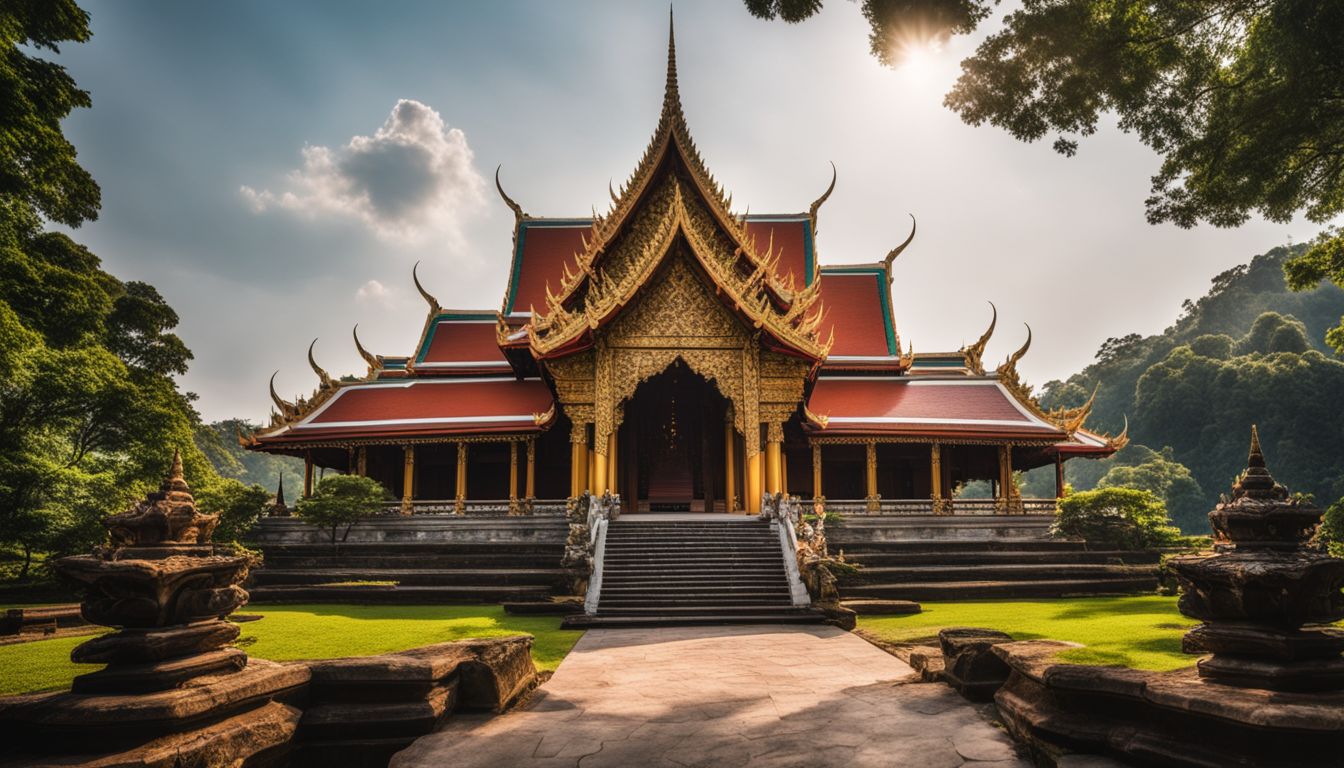
Westerners are commonly referred to as Farang in Thai culture, encompassing Caucasians and even African-Americans.
Commonly used to describe Caucasians

In Thai culture, the term “farang” is often tied to Caucasians. It’s a word that comes up when people talk about Westerners. The Thais use this word when they see someone who has white skin and western facial features.
You will hear it in big cities like Bangkok or Phuket.
But there’s more to it. People can also use “farang” for African-Americans or fluent Thai speakers of Indian descent. So even if you are not Caucasian but come from the West, you could hear this term used for you too! This shows that in Thailand, “farang” talks more about where you come from than what you look like.
Can also include African-Americans

In Thai culture, the term “farang” is commonly used to describe Westerners or foreigners. However, it’s important to note that this term can also include African-Americans. The word “farang” does not specifically refer only to Caucasians; it encompasses a broader definition of non-Thais or outsiders in general.
This usage reflects the diverse makeup of Thailand’s expatriate community and highlights the country’s historical and cultural connections with different parts of the world.
The inclusion of African-Americans as “farang” in Thai culture speaks to the fluidity and complexity of identity within this context. It demonstrates that Thais may categorize individuals based on their foreignness rather than specific racial classifications.
This recognition challenges us to broaden our understanding and avoid making simplistic assumptions about how terms like “farang” are used.
Overall, recognizing that African-Americans can also be considered as “farang” in Thai culture underscores the importance of embracing diversity and acknowledging that identities are multifaceted.
Different Connotations of Farang

Farang can carry both positive and negative connotations depending on the context in which it is used.
Positive connotations

In Thai culture, the term “Farang” has positive connotations when used to describe Westerners. It is not meant to be offensive or harmful. Instead, it is a way of acknowledging and appreciating cultural differences.
Thais often associate Farangs with wealth, modernity, and sophistication. They see them as exotic and intriguing, leading to curiosity and interest in getting to know them better.
When called “Farang,” it can also imply friendliness and openness towards foreigners. Thais are generally welcoming and hospitable towards Westerners because they believe they bring new ideas, experiences, and perspectives.
This positive association stems from historical encounters between Thais and Europeans which have influenced their perception over time.
Negative connotations

The term “Farang” in Thai culture can have negative connotations. For example, it can be used to describe African-Americans, known as “farang dam” or “black farang,” suggesting a negative connotation towards this group.
This usage highlights the racial bias that exists within the term’s meaning.
Furthermore, being called Farang can result in a sense of separation for Westerners living in Thailand. It indicates that they are seen as outsiders or foreigners and may struggle with integrating into Thai society.
This feeling of exclusion can have a negative impact on their overall experience and sense of belonging.
It is important to note that while the term “Farang” itself is not inherently offensive, its usage can lead to ignorance from the Thai perspective. This ignorance suggests a negative perception or lack of understanding towards foreigners and creates barriers between locals and expatriates.
Implications of Being Called Farang
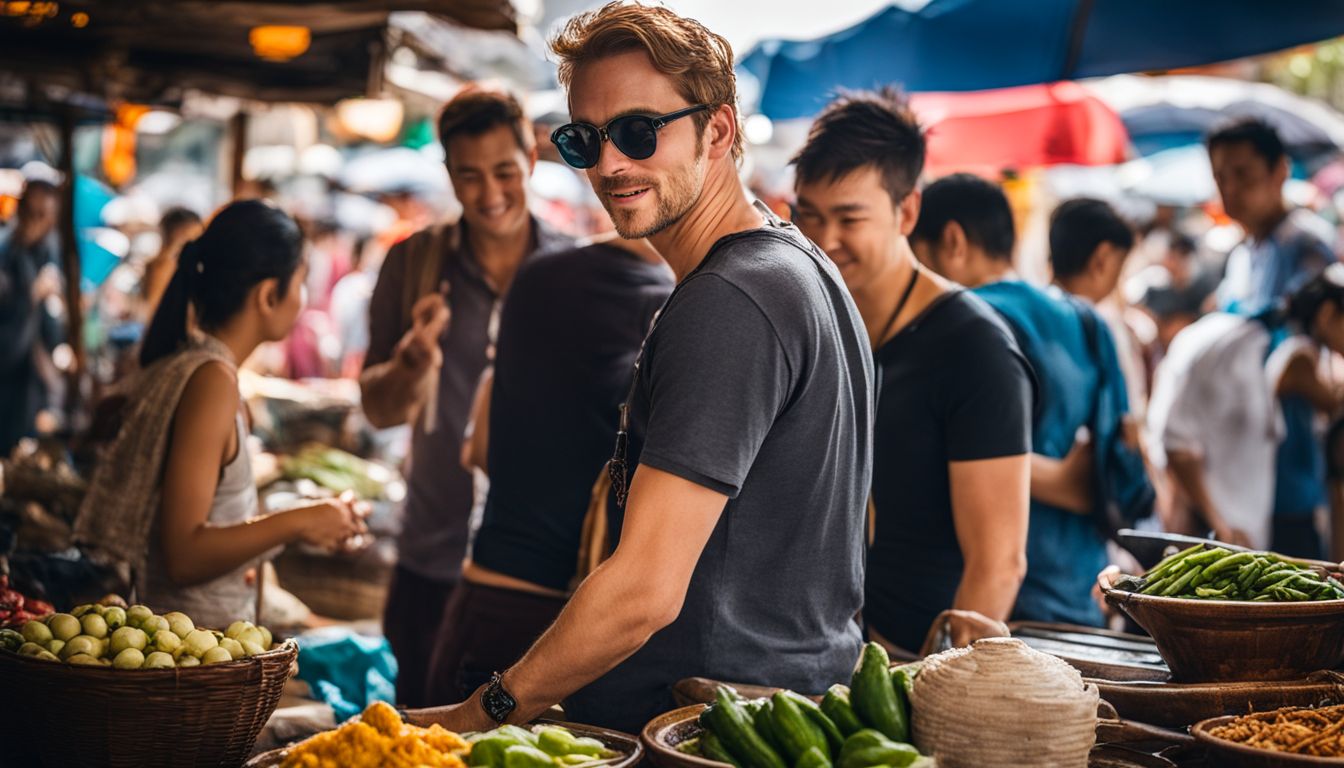
Being called Farang in Thailand can have various implications, including highlighting cultural differences, shaping perceptions of foreigners, and perpetuating a stigma against Farangs.
Cultural differences
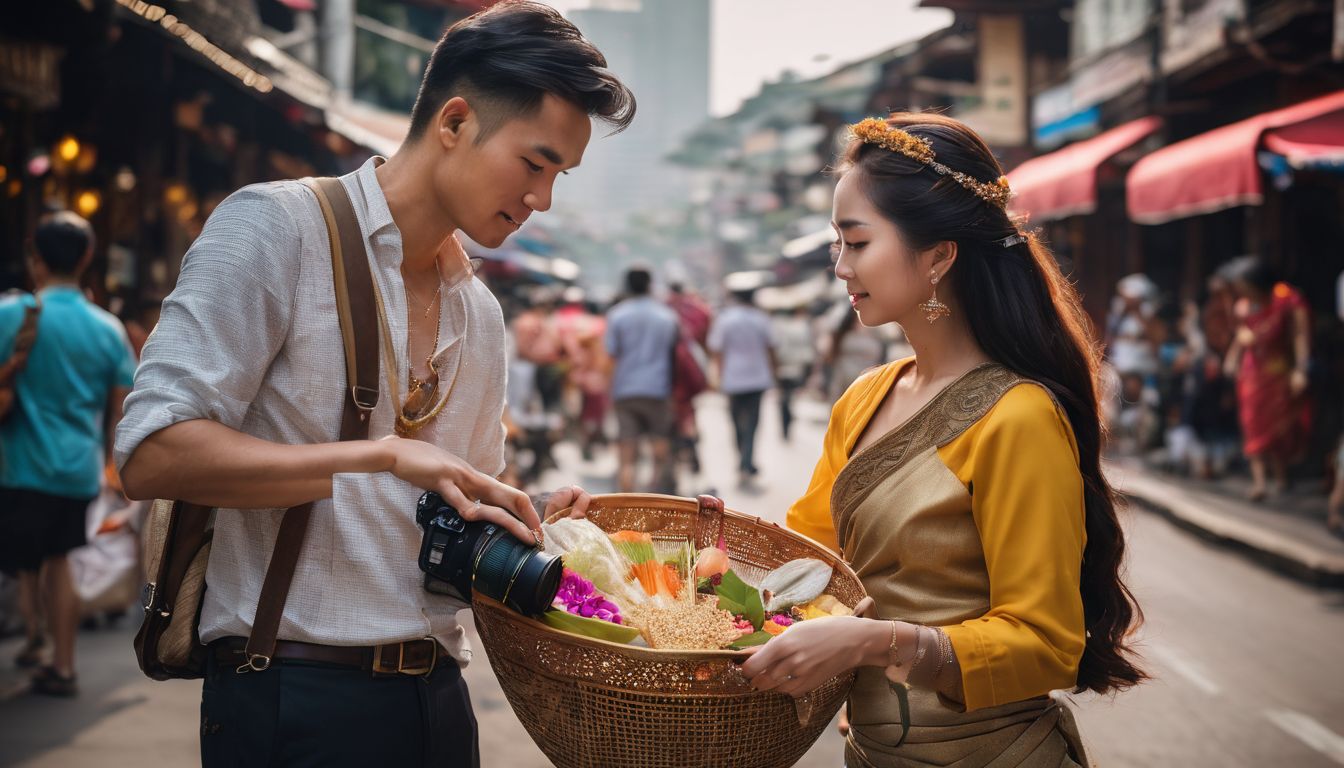
In Thai culture, the term “farang” has different meanings and implications compared to Western countries. This reflects cultural differences in perception and understanding. For example, in Thailand, calling someone “farang” simply means they are from a foreign land.
However, in Western cultures, it may be considered offensive or derogatory to label someone based on their nationality or appearance. These cultural differences highlight the importance of being sensitive and aware of different cultural norms when interacting with Thai people.
Another cultural difference related to being called “farang” is the perception of foreigners in Thailand. While some Thais may use the term without any negative connotations, there can be a stigma associated with being called “farang.” This can lead to assumptions about social status or economic disparities between Thais and foreigners.
Perception of foreigners
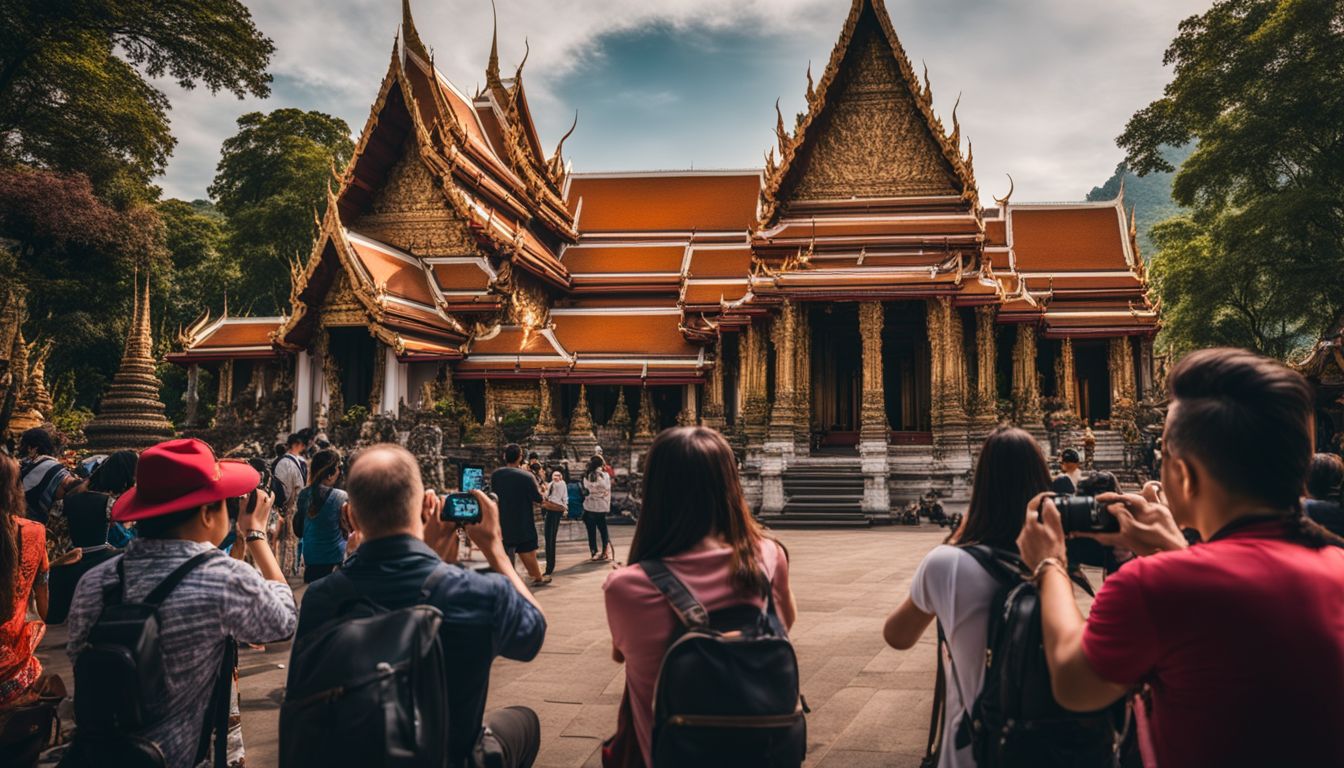
Foreigners in Thailand are often seen through a specific lens, shaped by Thai culture and societal norms. The perception of foreigners can vary depending on individual experiences and interactions.
Being called “Farang” can sometimes carry negative implications or stereotypes due to cultural differences and misunderstandings. Some Thais may view foreigners as exotic or interesting, while others may have preconceived notions or stigmas against them.
The influence of media and popular culture plays a significant role in shaping the perception of foreigners in Thailand. Western countries are often portrayed as advanced, wealthy, and glamorous, which can lead to unrealistic expectations or assumptions about foreigners from these countries.
Additionally, historical factors such as colonialism have contributed to certain perceptions of Westerners being superior or more privileged.
Stigma against Farangs
In Thailand, there is a stigma against farangs, or foreigners. Some Thais may hold negative stereotypes about farangs due to cultural differences and misunderstandings. For example, some farangs’ behavior may give Thais the idea that they are surly, rude people with poor personal hygiene.
This can lead to discrimination and prejudice towards foreigners in Thai society. It’s important to understand these perceptions and work towards cultural sensitivity to bridge the gap between different cultures.
The stigma against farangs in Thailand is also influenced by social perception and cultural norms. Westerners are sometimes seen as exotic or different from Thai people, leading to curiosity but also potential exploitation.
The moral justifications of Western men who travel to Thailand for sex with Thai women raise questions about power dynamics and ethical considerations. Understanding the implications of being called a farang helps shed light on these complex issues and promotes greater understanding between locals and foreigners in Thailand.
Overall, addressing the stigma against farangs requires open-mindedness, empathy, and a willingness to learn from each other’s cultures. By challenging stereotypes, promoting inclusivity, and building bridges based on mutual respect, we can work towards breaking down barriers and fostering greater acceptance in society.
The Evolution of the Word Farang

The word “farang” has undergone significant changes in meaning over time, reflecting shifts in Thai culture and perceptions of foreigners.
Historical usage
The word “farang” in Thailand has a historical significance. It originated from the Sanskrit word “farangka,” which means “French.” However, over time, its meaning expanded to include all people from foreign lands, not just the French.
The Thai language was influenced by neighboring cultures, and traders used the term “farang” to refer to European traders. This shows that the usage of the word has evolved over time and is now commonly used in Thailand to describe foreigners or non-Thai individuals.
Changes in meaning over time
Over time, the meaning of the word “Farang” in Thai culture has evolved. Originally, it referred to the Franks, a Germanic tribe. But as contact with Westerners increased, it began to encompass all Western or Latin individuals.
The term went from describing a specific group to representing foreigners in general.
Throughout history, the term “Farang” took on different connotations based on societal attitudes and perceptions. In some cases, it had positive associations such as being exotic or unique.
However, it could also carry negative implications like being an outsider or alien.
Farang and Other Cultures
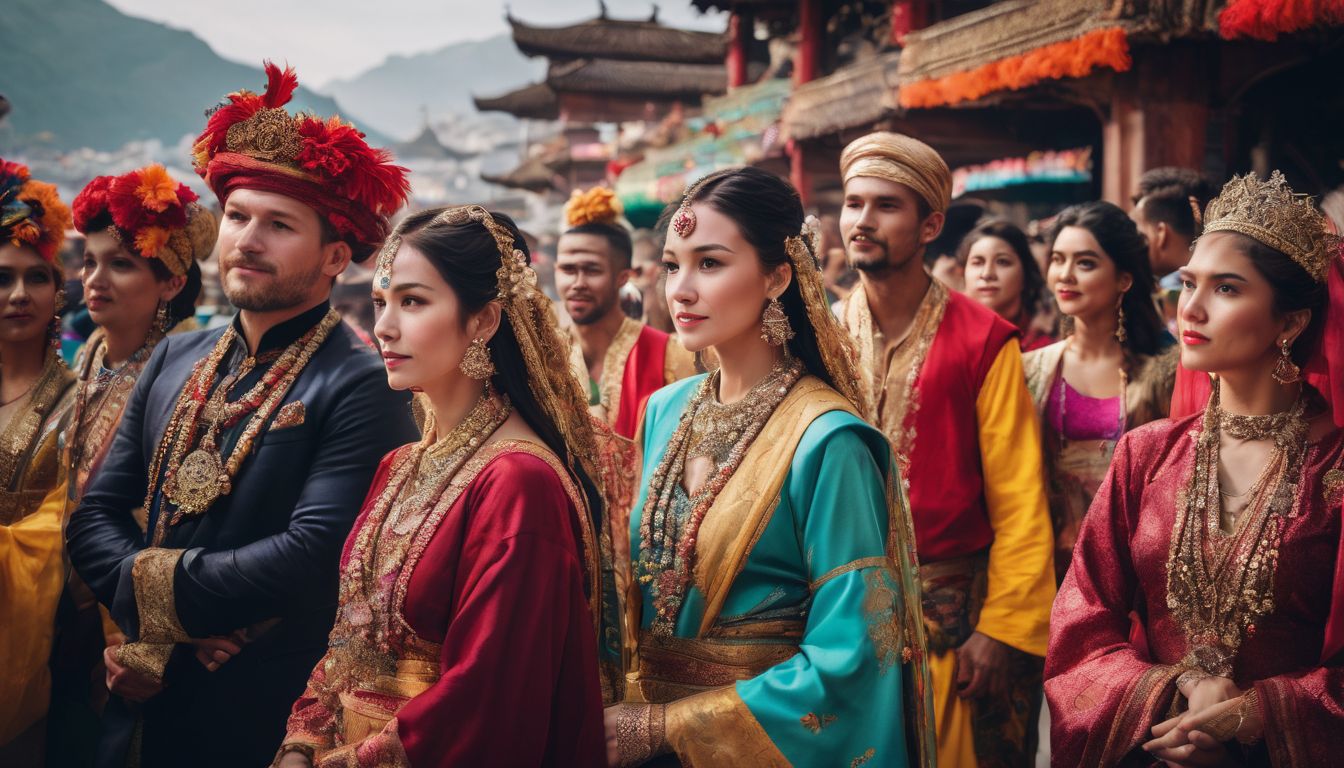
The word “farang” has similarities to words used in other languages, but its usage and connotations differ.
Similar words in other languages
In other languages, there are similar words to “farang” that refer to foreigners or outsiders. For example, in English, the word “foreigner” is commonly used. Other words include “expat,” which refers to someone living outside their home country, and “outsider,” which describes someone who is not part of a particular group or community.
Additionally, “alien,” “nonnative,” and “visitor” are also used to describe people from another country residing temporarily. The term “immigrant” refers specifically to individuals who have permanently moved to another country, while “noncitizen” refers to those without citizenship in a particular place.
Lastly, the word “stranger” encompasses anyone unfamiliar or unknown in a given context. These words highlight that different cultures have their own ways of referring to people from foreign lands.
Differences in usage
There are differences in the usage of the word “farang” in Thai culture compared to other cultures. In Thailand, “farang” is commonly used to describe Caucasians or Westerners. It specifically refers to people of Western ancestry, not all foreigners.
However, it’s important to note that in Thai culture, the term can also include African-Americans and other non-Thai individuals.
In other languages and cultures, similar words may exist to refer to foreigners or outsiders. However, these terms may have different connotations and contexts than “farang” in Thai culture.
It’s important to understand the specific meaning and usage of these words within each cultural context.
Is Farang Offensive?

The offensiveness of the term “Farang” in Thai culture depends on context and usage.
Context-dependent usage
The usage of the word “farang” in Thai culture can vary depending on the context. It is important to understand that the term itself is not inherently derogatory, but its connotations can change based on how it is used.
In some situations, Thais might use “farang” simply as a descriptive term for foreigners or Westerners without any negative implications. It can be similar to saying “foreigner” or “non-Thai.” However, there are instances where the word is used with negative undertones or stereotypes.
For example, if someone uses it in a discriminatory or disrespectful manner, it could be considered offensive.
It’s crucial to consider the speaker’s intention and tone when interpreting the meaning behind calling someone a farang. Some individuals may use it innocently as an identifier for outsiders while others may use it with prejudice or judgment.
The key lies in understanding that its usage depends on factors such as familiarity between speakers, relationship dynamics, and cultural norms. As a foreigner in Thailand, being aware of these contextual nuances can help you navigate conversations and interactions more effectively.
When it can be considered offensive
In Thai culture, the term “farang” is generally not considered offensive or harmful when used to describe Westerners. Unlike some racial epithets in Western societies, there is no history of oppression associated with the word “farang.” However, it’s important to remember that context plays a crucial role in determining whether the term can be considered offensive.
While Thais may categorize people based on their skin color, hair, shape of eyes, and body type, it is usually done without malicious intent. Instead, it reflects their way of distinguishing different groups of people.
That being said, if someone uses the term “farang” in a derogatory or disrespectful manner towards you personally or tries to belittle your culture because you are a foreigner, then it can be considered offensive.
How to React When Called Farang in Thailand

React with understanding and cultural sensitivity, considering the intention behind the word and embracing the opportunity for intercultural exchange.
Understanding the intention behind the word
When someone in Thailand refers to you as “farang,” it’s important to understand that they are not using the word to insult or demean you. Instead, they are simply acknowledging that you are a foreigner from a Western country.
The term “farang” is commonly used to refer to Caucasians and sometimes African-Americans in Thai culture. It originally meant “French,” but over time its meaning has expanded to include all people from foreign lands.
Being called “farang” does not have negative connotations in Thai culture. It is simply a way for Thais to distinguish between locals and foreigners. If someone uses the term when speaking about you among a group of Thais, it is likely because they want to address or point out your presence, rather than intending any harm or offense.
Cultural sensitivity
Understanding and practicing cultural sensitivity is crucial when it comes to interacting with different cultures, including Thai culture. Being culturally sensitive means being aware and respectful of the customs, norms, and values of a particular culture.
In the context of being called “farang” in Thailand, it’s important to remember that this term may have different implications depending on the situation or person using it.
Cultural sensitivity involves recognizing that not all individuals within a specific culture will hold the same beliefs or opinions. It requires understanding that people are diverse and should not be generalized based on their nationality or appearance.
By being culturally sensitive, you can avoid making assumptions about others and instead approach interactions with an open mind.
When someone refers to you as “farang” in Thailand, try to understand their intention behind using this word. While some may use it neutrally without any negative connotations, others might have underlying prejudices or stereotypes associated with the term.
By being culturally sensitive, you can navigate these situations more effectively and respond appropriately.
Conclusion

In conclusion, understanding the meaning of “farang” in Thai culture is important for cultural awareness and communication. The term has evolved over time to refer to foreigners, particularly Caucasians and African-Americans.
It can have positive or negative connotations depending on the context. Being called “farang” in Thailand carries implications of cultural differences and foreignness. It is essential to react with cultural sensitivity and strive for intercultural understanding when encountering this term.
FAQs
1. What does the term “Farang” mean in Thai culture?
The term “Farang” is used in Thai culture to refer to foreigners or people of Western descent.
2. Is the term “Farang” considered offensive?
No, the term “Farang” is not inherently offensive. It is commonly used by Thais to describe foreigners and does not carry a derogatory meaning.
3. How is the term “Farang” typically used in Thailand?
In Thailand, the term “Farang” is often used casually and without negative connotations to refer to individuals who are from Western countries.
4. Are there any implications or stereotypes associated with being called a “Farang” in Thailand?
While being called a “Farang” may indicate that someone is foreign, it does not necessarily imply any specific stereotypes or implications beyond that.
5. Can non-Thai individuals use the term “Farang” when referring to themselves?
Yes, non-Thai individuals can use the term “Farang” when referring to themselves if they feel comfortable doing so. However, it’s important to be aware of cultural context and sensitivity when using such terms.
